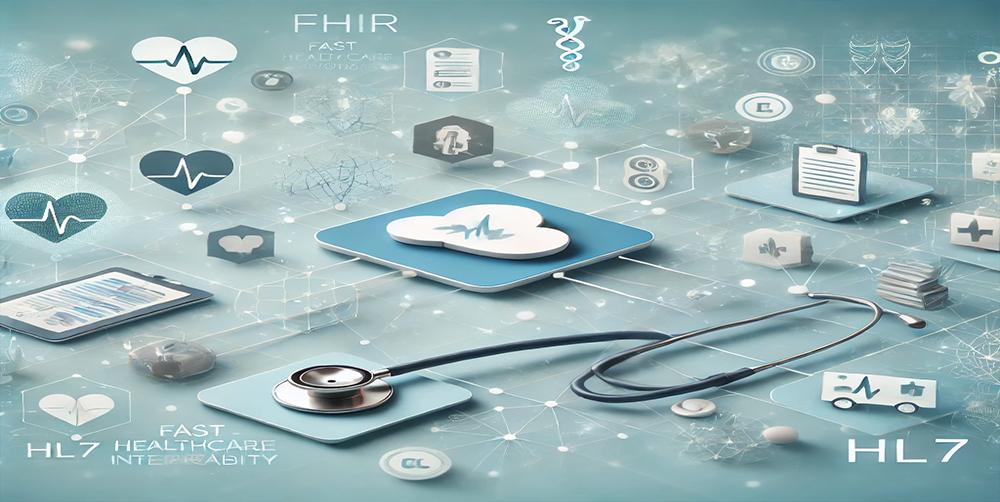Table of Contents
Artificial Intelligence (AI) has become a transformative force across numerous industries, and healthcare is no exception. In the United States, the healthcare sector is increasingly adopting AI technologies to enhance patient care, streamline operations, and drive efficiencies. From improving diagnostic accuracy to personalizing treatment plans, AI holds the potential to revolutionize healthcare delivery.
The Current State of AI in U.S. Healthcare
AI in healthcare can be broadly categorized into two areas: clinical applications and administrative applications.
- Clinical Applications: AI is being used to assist healthcare providers in making better clinical decisions. Machine learning algorithms are trained on large datasets of medical records, imaging data, and clinical trials to help identify patterns and predict outcomes. For example, AI-powered systems can analyze medical imaging (such as X-rays, MRIs, and CT scans) to detect conditions like cancer, fractures, or neurological disorders at early stages, often with greater accuracy than human clinicians.
- Example:
- PathAI is an AI company that assists pathologists by analyzing medical images and providing diagnostic support. The technology can detect diseases such as cancer by analyzing tissue samples, reducing human error and speeding up the diagnostic process.
- Administrative Applications: In addition to clinical applications, AI is being used to streamline administrative processes in healthcare settings. AI can assist in automating routine tasks like scheduling, billing, and coding, which not only saves time but also reduces human error. Chatbots and virtual assistants are being employed for patient engagement, answering common questions, and even providing mental health support.
- Example:
- IBM Watson Health leverages AI to help hospitals optimize administrative functions, including clinical trial matching, appointment scheduling, and patient data management.
How AI Improves Patient Care
- Personalized Treatment: One of the most promising applications of AI in healthcare is its ability to create personalized treatment plans. By analyzing a patient’s genetic makeup, lifestyle, and medical history, AI can recommend the most effective treatments, predict disease progression, and even suggest lifestyle modifications. This leads to more targeted interventions and better outcomes.
- Example:
- Tempus is a technology company that uses AI to personalize cancer care. By analyzing genetic data and clinical records, Tempus helps doctors select the best treatments tailored to the patient's specific cancer type.
- Predictive Analytics: AI systems can analyze historical patient data to predict future health events, such as the likelihood of developing chronic conditions like diabetes, heart disease, or stroke. Early identification of these risks allows for preventative measures and earlier interventions, potentially saving lives and reducing long-term healthcare costs.
- Example:
- Zebra Medical Vision uses AI to scan medical imaging data and predict conditions like cardiovascular diseases, cancer, and neurological disorders, offering early detection that can be life-saving.
- Clinical Decision Support: AI assists doctors by offering evidence-based insights and suggestions. These AI-powered clinical decision support systems (CDSS) analyze large volumes of medical literature and patient data to provide doctors with the most current information, helping them make informed decisions.
- Example:
- Aidoc uses AI to assist radiologists in detecting life-threatening conditions, such as brain bleeds or pulmonary embolisms, by analyzing CT scans and providing real-time insights.
AI in Health Equity and Access
AI also has the potential to address disparities in healthcare access and outcomes. In underserved areas, where healthcare resources are scarce, AI can provide diagnostic support, telemedicine solutions, and virtual health assistants. AI-powered tools can help fill gaps in care by offering remote consultations, enabling healthcare workers to manage patient care more efficiently.
For example, AI-powered telemedicine platforms are making healthcare more accessible to rural or low-income populations, helping them connect with specialists they might otherwise never have access to.
Regulatory and Ethical Considerations
While AI promises great benefits, its integration into healthcare also raises important regulatory and ethical issues. The U.S. Food and Drug Administration (FDA) has begun to regulate AI-based medical devices, ensuring they meet safety and efficacy standards. However, questions regarding data privacy, algorithmic transparency, and bias in AI models still need careful attention.
- Bias in AI: AI systems are only as good as the data they are trained on, and biased data can lead to biased outcomes. In healthcare, this means that AI systems could perpetuate disparities in care if not carefully monitored. Ensuring that AI algorithms are trained on diverse datasets is crucial to mitigating bias.
- Data Privacy: With the implementation of AI comes the need for robust data protection mechanisms. AI systems often require access to sensitive patient data, raising concerns about patient privacy and data security. Healthcare organizations must comply with regulations like HIPAA to ensure patient data is protected.
The Future of AI in U.S. Healthcare
Looking ahead, the role of AI in healthcare is set to expand even further. As machine learning algorithms improve and more clinical data becomes available, AI systems will continue to evolve, becoming more accurate and efficient. Additionally, AI’s ability to integrate with other emerging technologies, like blockchain and the Internet of Things (IoT), will open up even more possibilities for improving patient care.
In the future, AI could enable real-time, continuous monitoring of patient health, empowering both patients and healthcare providers to take a proactive approach to care. For example, wearable devices that track vital signs could use AI to predict health events and alert patients or doctors before they occur.
Conclusion
AI is undoubtedly changing the landscape of healthcare in the U.S., offering exciting opportunities for improving both patient outcomes and operational efficiencies. While there are still challenges to address, such as regulatory frameworks and ethical considerations, the potential of AI to enhance care, increase accessibility, and reduce costs is immense. As technology continues to evolve, AI is poised to become a cornerstone of modern healthcare, helping to shape a healthier, more efficient future.
No Comments Yet
Be the first to share your thoughts about this post!



Comments (0)